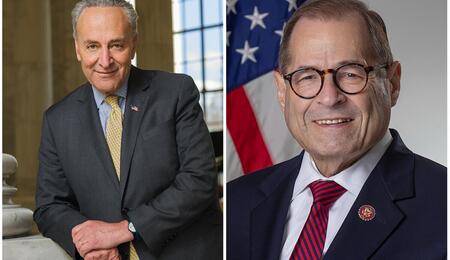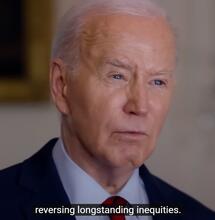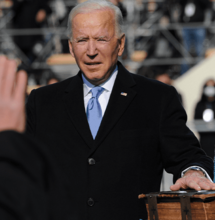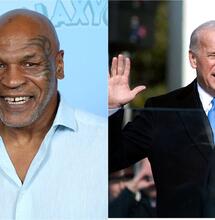Political Figures Who Are Behind Legalization

Marijuana legalization has long been a divisive question among U.S. politicians. It has taken years of preparation to witness historical moments such as the House of Representatives passing a bill to legalize marijuana federally back in 2020. Right now, Chuck Schumer and Jerrold Nadler are likely the two most prominent political figures at the frontlines in the battle to install a legal weed bill in Washington. The issue is they represent two different pieces of legislation.
While support for legal cannabis currently enjoys the highest rate of approval in the country, it has to be acknowledged that this has been the result of the effort of hundreds of campaigners and political activists over a number of decades. Federal legalization now comes down to high-level politicians in Washington and their success at pushing ahead a legal weed bill through both the House and Senate.
Unfortunately, some prominent political figures who supported Cannabis are no longer among us. Last spring, we lost Republican Don Young, who was one of just five GOP members of the House of Representatives to vote in favor of a bill to end marijuana prohibition. Young was the longest-serving member of the House and one of the four co-chairs of the bipartisan Congressional Cannabis Caucus. This body also includes Republicans Earl Blummenaur, Barbara Lee, and Dave Joyce.
In 2020, the U.S. House of Representatives wrote history when it approved a bill to legalize marijuana at the federal level. The Marijuana Opportunity Reinvestment Expungement (MORE) Act was introduced in the House of Representatives by Republican Jerrold Nadler (D-NY). Nadler represents New York's 10th Congressional District, one of the country's most dynamic and diverse districts.
Bringing the MORE Act into a chamber of the Congress has, needless to say, taken years of work. It is one of the most comprehensive marijuana reform bills ever considered in the U.S. Congress. In May 2021, Nadler reintroduced the MORE Act in the U.S. House of Representatives after the bill did not advance in the Senate. U.S. Senator Kamala Harris (D-CA) introduced the companion bill in the Senate.
The MORE Act aims to correct historical injustices of harmful drug policies that have disproportionally impacted communities of color and low-income families by requiring resentencing and expungement of prior convictions.
Besides this bill being endorsed and sponsored by top politicians, the MORE Act is also backed by over 130 organizations, including the National Organization for the Reform of Marijuana Laws (NORML), ACLU, NAACP, Drug Policy Alliance, the National Association of Criminal Defense Lawyers, the National Juvenile Justice Network, the Leadership Conference on Civil and Human Rights, and many many more.
Nadler enjoys huge admiration among his colleagues in Congress, who describe him as "a staunch defender of civil rights and civil liberties in America, and a passionate advocate for these issues in Congress."
Besides cannabis reform, Nadler has fought for women's rights, and LGBT rights. He has also played an extraordinary role in raising questions about the environmental and occupational hazards caused by the collapse of the World Trade Center and the fires that raged at Ground Zero for months.
The MORE Act has not passed through the Senate, however, Nadler is adamant in his mission. "For far too long, we have treated marijuana as a criminal justice problem instead of as a matter of personal choice and public health," he said in his floor statement last April in support of the bill. "Whatever one's views are on the use of marijuana for recreational or medicinal use, the policy of arrests, prosecution, and incarceration at the Federal level has proven both unwise and unjust."
He added: "That is why the MORE Act would set a new path forward and would begin to correct some of the injustices of the last fifty years. The bill decriminalizes marijuana at the federal level, by removing it from the Controlled Substances Act. This change applies retroactively to prior and pending convictions. It does not, however, undermine the ability of states to apply their criminal laws to marijuana or to legalize and regulate, as they see fit."
In his speech, Nadler acknowledged the tireless work of other politicians who've backed the legal weed bill he sponsors. He said: "While I am proud to be the sponsor of this legislation, there are many people who are responsible for getting us to this point today, and I want to thank them for their efforts.
"This includes Congresswoman Barbara Lee, the 'the mother of this movement,' and Congressman Blumenauer, whose dogged persistence was critical to moving this legislation forward. Congressman Cohen has also been a longtime champion and an important voice in the movement for reform, as has Congresswoman Jackson Lee, who helped shepherd this legislation to the floor.
"I also want to thank Chairman Neal, who has been a critical partner in drafting the revenue provisions in this bill and in helping move this legislation to the floor, as well as Chairman McGovern, who structured a good debate on this bill.
"Finally, Speaker Pelosi, Whip Clyburn, and Chairman Jeffries have all been steadfast in their support of this legislation, and I want to particularly thank Majority Leader Hoyer for everything he has done to bring this bill to the floor."
While Nadler and his team are pushing forward the MORE Act, another group, led by Senate Majority Leader Chuck Schumer (D-NY), has spent years paving the way for the marijuana banking bill, among other legislation. Drafts of the Secure and Fair Enforcement (SAFE) Banking Act sponsored by Schumer have been cleared in the House seven times so far but were always held up in the Senate.
Born and raised in Brooklyn, Charles Ellis "Chuck" Schumer has sponsored bills that advance reproductive health, that reduce violent crime, and that approach violence against women. He is probably the highest-ranking champion of marijuana legalization in Washington, labeling it a top priority question over the last two years. Legalization was one of the issues he said Democrats would tackle if they took back the Senate in 2020.
"When a state like South Dakota votes by referendum to legalize, you know something is out there," Schumer told Politico last year. "The American people started speaking sort of with a clear message. More than two-to-one, that they want the law changed."
While the SAFE Banking Act seeks to normalize banking services for cannabis operators, Schumer has also introduced a separate legal weed bill this summer. Known as the Cannabis Administration and Opportunity Act, Schumer has co-authored this bill with Sens. Cory Booker and Ron Wyden. Although the bill has the same aims as the MORE Act—both seek to decriminalize marijuana on the federal level and allow states to set their laws on regulating pot products—political spectators see it as a rival bill.
Like the MORE Act, the CAOA has its fair share of obstacles, too.
The House passed the MORE legalization package twice. Unlike the CAOA bill, that legislation does not include some of the regulatory structure and doesn't have the same tax rate as the Senate bill.
The legalization of cannabis has been framed among Republicans as a state's right issue in the past, but many pro-decriminalization Republicans are likely to disapprove of the bill because it expunges cannabis-related criminal convictions and provides equity grants.
Schumer would need the support of all Democrats plus a dozen Republicans to get his version of the marijuana legalization bill the full approval it requires. The trickiest part perhaps is that many lawmakers from states with legal markets don't yet support substantial changes to federal law. One example is Democratic Senator Jon Tester, who represents Montana, which launched its legal state market beginning of 2022. Tester says he is not in favor of federal legalization. A few other Democrats have also expressed opinion against or remain undecided on the subject, including Sens. Jeanne Shaheen (D-N.H.), Joe Manchin (D-W.Va), and Bob Casey (D-Pa.).
Even if a bill were to pass, it is unclear if President Biden would sign it since he has consistently opposed legalization and he has rarely spoken on any marijuana-related subject so far.









